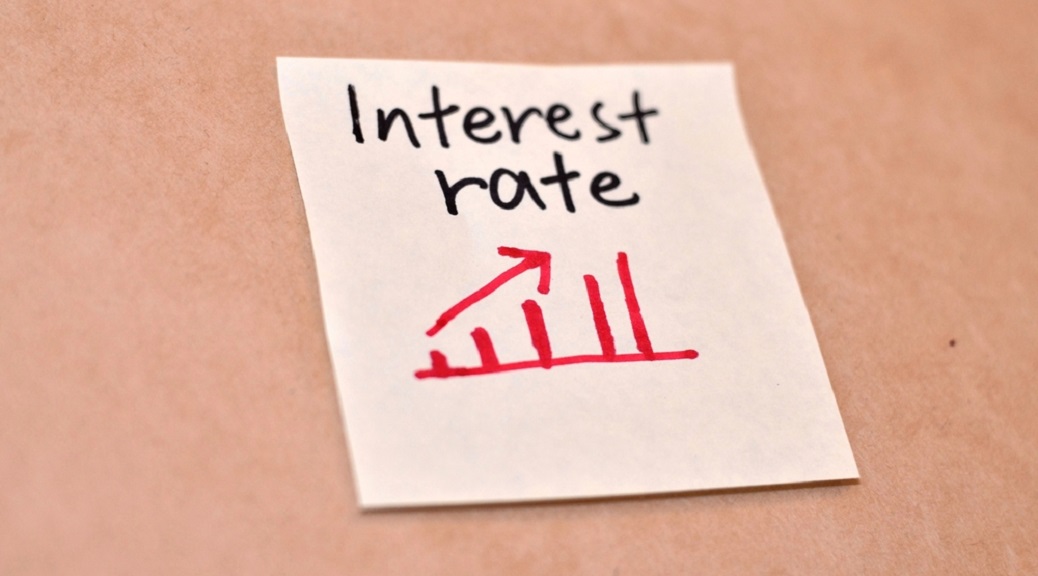Whether you are looking to buy a new house, finance a car, or open new line of credit, your current credit history affects the interest rate you will be offered. Since credit scores are a numeric calculation of your credit history, financers use these numbers to determine what rate of interest to charge you. If you have read the Your Credit Score Broken Down article, then you should be familiar with how your score is calculated. Now, the CGS Team is going to share how credit scores affect interest rates, and what types of rates you could expect to receive with your current score.
Understanding Interest Rates
Before we get into the nitty gritty of how credit scores affect interest rates, it’s important to understand what an interest rate is and why it is necessary. When you finance a car, mortgage or open a credit card, you are borrowing money from the company who holds your loan or credit card. In the case of a car loan or mortgage, you are paying back a loan to finish with ownership of the item.
With a credit card, you are paying back a line of credit. An interest rate is the percentage rate at which the company lending you the money charges you for borrowing said money. Typically car loan and mortgage rates can range from 2-10%. Credit card and lines of credit can be as high as 25%. The process works the same for your savings account. You receive interest for the money in your savings account because the bank essentially borrowers that money from you.
Interest rates will never go away, so the best thing you can do about it is get the lowest rate possible. Since interest is the cost of borrowing money, you are throwing that money away with each payment. If you can get your rate as low as possible, you won’t be spending as much in the long run. Read Finance 101: Understanding Interest for more details on how interest works.
Credit + Interest
Banks, lenders, and other credit card companies use your credit score as one of the primary factors when deciding your interest rate. Since your credit score is a measure of your “creditworthiness”, the higher your credit score, the lower the interest rate. The reason for this is because of your risk value to the lender. If you are thinking of approaching your bank for a loan, read 5 Ways to Approach a Bank Loan.
A high credit score indicates that you are timely with payments, don’t have an excessive amount of debt, and show consistency in your financial affairs. This means that you are less likely to default on a loan or a credit card bill. A low credit score indicates that you make payments late, don’t make payments at all, have an excessive amount of debt, or have items in collection.
This reflects you as a risky borrower. The likelihood that you will not make your payments on time, if at all, is higher because your credit score shows that. This will raise a red flag to the lender and if they do offer your credit, you will be paying for it with a higher interest rate.
Where Do You Stand?
While we can’t give you an exact answer on what credit score will result in a specific interest rate, we can give you a general idea. The reason is because everyone’s credit history (to reach the score they have) is different, and different lenders may be looking for different things.
If you have a high credit score, think 740 and above, you can expect low interest rates, higher credit limits, and eligibility for special offers that may be open. The higher your credit score, the lower the interest rate and the higher your credit limits.
If you have a fair credit score, think 620-739, you can expect to be offered average to high interest rates, lower credit limit amounts, and difficulties qualifying for any special offers or promotions.
If you have a low credit score, anything below 620, you may find it difficult to qualify for anything. If you do qualify, you can expect extremely high interest rates, low credit limit amounts, and possible fees associated with initiating new debts.
Having a stable credit history is extremely important for everyone. Working towards good credit now will make it easier for you down the line when you want to buy a house or a car. Remember that things take time, but if you stay consistent, it will happen. Check out the article 7 Tips to Help Boost Your Credit Score for some tips on how to build a positive credit history.
Do you have any experience with building credit? What areas are you succeeding and struggling with? Can you share any tips that work for you? The CGS Team strongly encourages open discussions among members. We are all here to become financially successful, so get vocal! Leave a comment below or in any of the CGS groups!






2 thoughts on “How Credit Scores Affect Interest Rates”
This article was extremely insightful! I knew that credit scores make a difference on what interest rate you get, but to actually understand the process is eye-opening! 5 star article!
Interest rates really make a difference! When I was first building credit interest rates were so high and it makes the cost of lending very expensive and discouraging. But as you build good credit you are definitely rewarded with lower interest rates which makes borrowing a much easier process.